Herbal Tea
Herbal Tea Specification
- Type
- Herbal Tea
- Variety
- Masala
- Physical Form
- Loose Leaves
- Extract Type
- Herbal Extract
- Style
- Dried
- Sugar Content
- No Added Sugar
- Ingredients
- Blend of Traditional Indian Herbs and Spices
- Color
- Golden Brown
- Health Benefits
- Boosts Immunity, Improves Digestion, Relieves Stress
- Weight
- 100g, 250g, 500g Pack
- Feature
- Naturally Caffeine Free, Rich in Herbs
- Aroma
- Aromatic Herbal Fragrance
- Taste
- Spicy and Refreshing
- Caffeine (%)
- 0%
- Moisture (%)
- Less than 5%
- Maturity
- Fully Matured Premium Leaves
- Grade
- Premium
- Processing Type
- Blended and Dried
- Shelf Life
- 12-24 Months
- Recommended Brewing Temperature
- 90-95°C
- Solubility
- Steeps Easily in Hot Water
- Packaging Type
- Sealed Pouch
- Allergen Information
- Contains Natural Spices
- Storage Instructions
- Store in a Cool, Dry Place
- Serving Size
- 1 teaspoon per cup
- Usage
- Perfect for Morning and Evening Consumption
Herbal Tea Trade Information
- Minimum Order Quantity
- 100000 Pieces
- FOB Port
- Jaipur
- Payment Terms
- Cheque, Telegraphic Transfer (T/T), Western Union, Paypal, Letter of Credit at Sight (Sight L/C), Cash in Advance (CID), Cash Advance (CA)
- Supply Ability
- 500000 Pieces Per Day
- Delivery Time
- 3-4 Days
- Sample Available
- Yes
- Sample Policy
- Sample costs shipping and taxes has to be paid by the buyer
- Main Export Market(s)
- Australia, North America, South America, Eastern Europe, Western Europe, Middle East, Africa, Central America, Asia
- Main Domestic Market
- All India
About Herbal Tea
Benefits of herbal tea:
1. Digestive Health:
- Peppermint tea can help soothe indigestion, bloating, and gas.
- Ginger tea is known for its digestive properties and can alleviate nausea and motion sickness.
2. Relaxation and Stress Reduction:
- Chamomile tea has calming effects and can help reduce anxiety and improve sleep.
- Lavender tea is also relaxing and aids in reducing stress and promoting restful sleep.
3. Anti-Inflammatory Properties:
- Turmeric tea, made from the turmeric root, is known for its anti-inflammatory and antioxidant properties.
4. Immune Support:
- Echinacea tea is believed to boost the immune system and help prevent or reduce the severity of colds and flu.
- Elderberry tea is another immune-boosting option.
5. Heart Health:
- Hibiscus tea may help lower blood pressure and improve heart health due to its antioxidant properties.
6. Antioxidant Benefits:
- Green tea, while not a true herbal tea, is rich in antioxidants called catechins, which have various health benefits, including potentially reducing the risk of certain diseases.
7. Weight Management:
- Some herbal teas, such as dandelion tea and green tea, may aid in weight management by supporting metabolism and digestion.
8. Skin Health:
- Rooibos tea is rich in antioxidants and may help improve skin health and reduce signs of aging.
9. Respiratory Health:
- Thyme tea and eucalyptus tea are often used to soothe respiratory issues, such as coughs and congestion.
10. Liver and Kidney Health:
- Dandelion root tea may support liver and kidney health by acting as a natural diuretic and aiding detoxification.
11. Anti-Anxiety and Mood Enhancement:
- Lemon balm tea is known for its potential to reduce anxiety and improve mood.
12. Anti-Allergy Properties:
- Nettle tea may help alleviate allergy symptoms due to its natural antihistamine properties.
13. Diabetes Management:
- Cinnamon tea may help regulate blood sugar levels in individuals with diabetes.
FAQ:
1. What is herbal tea?
2. What are the most popular types of herbal tea?
3. Are herbal teas caffeine-free?
4. What are the potential health benefits of herbal tea?
5. Can I drink herbal tea during pregnancy?
6. How do I brew herbal tea?
- Boil water and let it cool slightly (usually around 93 degree centigrade).
- Place your herbal tea blend in a teapot or teacup (usually about 1 teaspoon of dried herbs per 8 ounces of water).
- Pour the hot water over the herbs.
- Steep for the recommended time (usually 5-10 minutes, but it varies by herb).
- Strain the herbs or remove the tea bag before drinking.
7. Are there any potential side effects of herbal tea?
8. Can I mix different herbs to create my own herbal tea blends?
9. How should herbal teas be stored?
10. Can children drink herbal tea?
Blended for Wellness
Masala Herbal Tea is crafted by blending the finest dried leaves with authentic Indian spices to deliver a potent combination known for boosting immunity and improving digestion. This caffeine-free beverage is suitable for those seeking natural support for daily wellbeing.
Premium Packaging and Freshness
Sealed pouches protect the loose leaves from moisture and preserve the unique spicy aroma. The packaging extends the shelf life up to two years when stored in a cool, dry place, ensuring every cup retains its full-bodied flavor and health benefits.
Simple and Effective Brewing
The loose-leaf structure and herbal blend steep easily in hot water, making preparation straightforward. For best results, use 1 teaspoon per cup, brewing at 90-95C for a few minutes. Enjoy this premium masala tea for both morning energy and evening relaxation.
FAQs of Herbal Tea:
Q: How should I brew Masala Herbal Tea for maximum flavor?
A: Use 1 teaspoon of the loose leaves per cup and pour water heated to 90-95C over the tea. Allow it to steep for 35 minutes to extract the full aromatic, spicy taste and herbal benefits.Q: What are the key health benefits of this Masala Herbal Tea blend?
A: This tea is designed to boost immunity, improve digestion, and help relieve stress thanks to its blend of traditional Indian herbs and spices, all naturally caffeine-free with no added sugar.Q: When is the best time to enjoy this herbal tea?
A: Masala Herbal Tea is perfect both in the morning for a refreshing start and in the evening to unwind. Its caffeine-free nature makes it suitable for any time of day.Q: Where should I store this tea to maintain its quality?
A: Store the tea in its sealed pouch in a cool, dry place. This preserves freshness, prevents moisture absorption, and extends shelf life up to 1224 months.Q: What process is used to produce this herbal tea blend?
A: Our tea is made from a blend of fully matured premium leaves and natural spices, which are carefully blended, dried, and packaged to lock in aroma and health properties.Q: Is Masala Herbal Tea suitable for people sensitive to caffeine or sugar?
A: Yes, it is naturally caffeine-free and contains no added sugar, making it suitable for individuals seeking a healthy and stimulating beverage without those ingredients.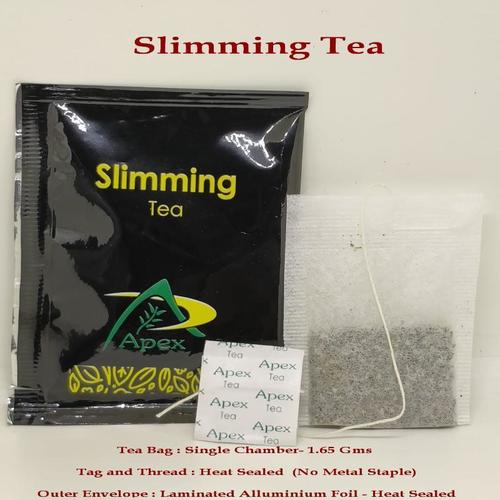

Price:
- 50
- 100
- 200
- 250
- 500
- 1000+
More Products in Herbal Tea Category
Green Tea Bag
Minimum Order Quantity : 100000 Pieces
Shelf Life : 24 months
Processing Type : other, Steamed and dried
Aroma : other, Fresh, Herbal
Sugar Content : Other, 0%
Organic Breakfast Tea
Minimum Order Quantity : 50 Boxes
Shelf Life : 24 Months
Processing Type : other, Fermented, Handpicked, Sundried
Aroma : other, Strong, Refreshing, Aromatic
Sugar Content : Other, Nil
Herbal Afternoon Tea
Minimum Order Quantity : 50 Boxes
Shelf Life : 18 months
Processing Type : other, Sundried, handsorted
Aroma : other, Fresh herbal bouquet
Sugar Content : Other, 0 g (Sugarfree)
Rose Green Tea
Price 400 INR / Kilograms
Minimum Order Quantity : 500 Kilograms
Shelf Life : 24 Months
Processing Type : Blended
Aroma : Rose
Sugar Content : 0%
 |
APEX INTERNATIONAL
All Rights Reserved.(Terms of Use) Developed and Managed by Infocom Network Private Limited. |

 English
English Spanish
Spanish French
French German
German Italian
Italian Chinese (Simplified)
Chinese (Simplified) Japanese
Japanese Korean
Korean Arabic
Arabic Portuguese
Portuguese
 Send Inquiry
Send Inquiry
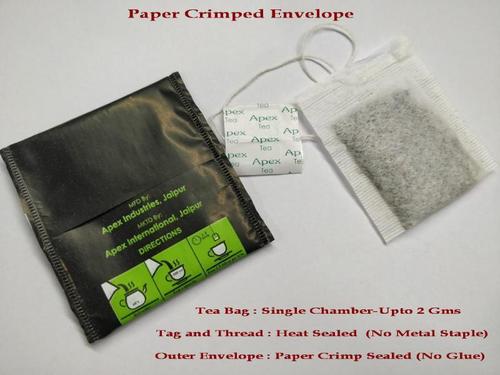
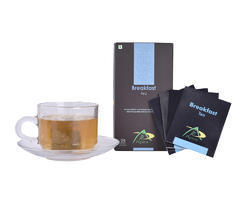
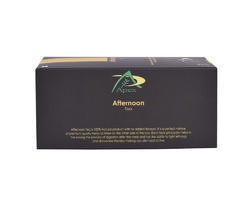
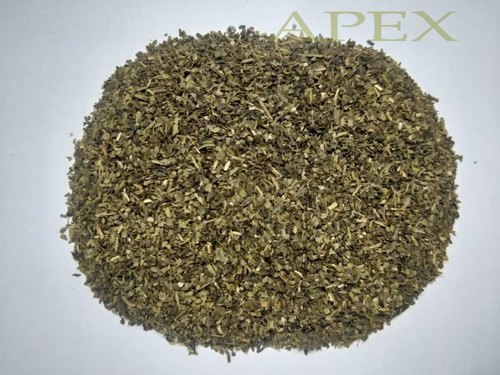


 Send Inquiry
Send Inquiry Send SMS
Send SMS Call Me Free
Call Me Free
